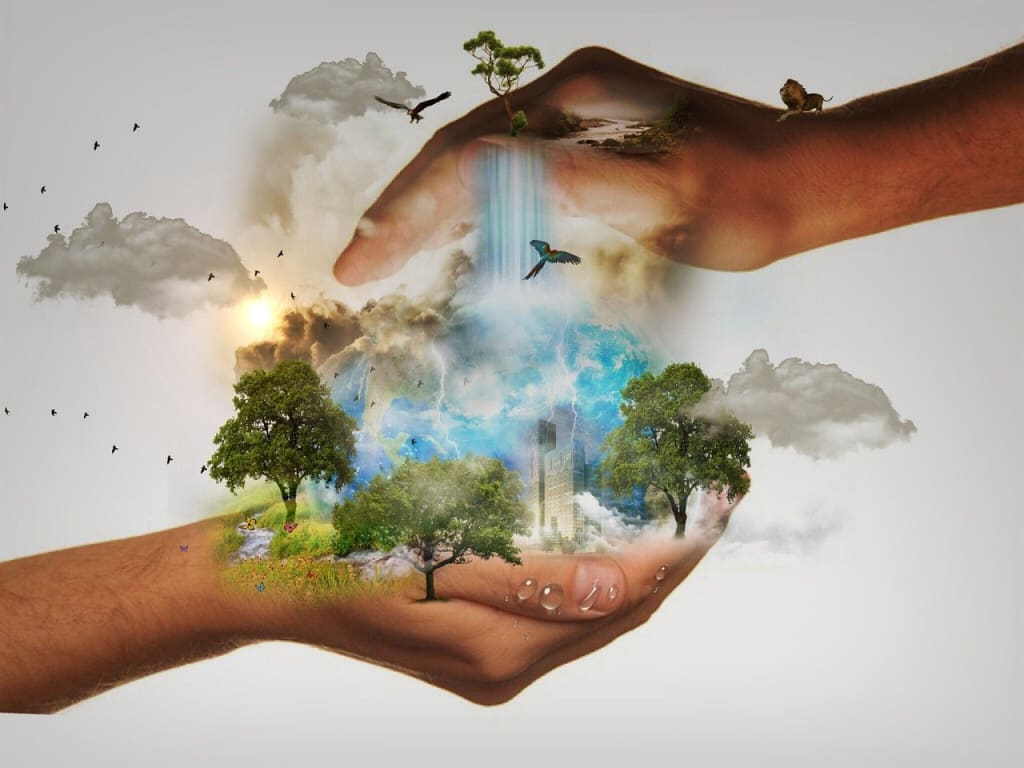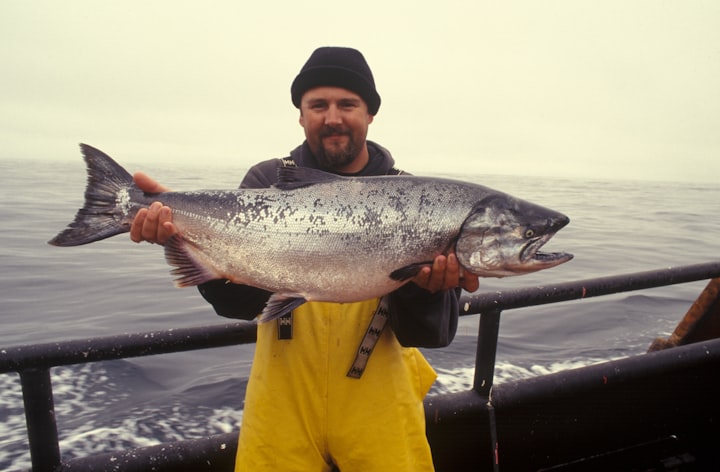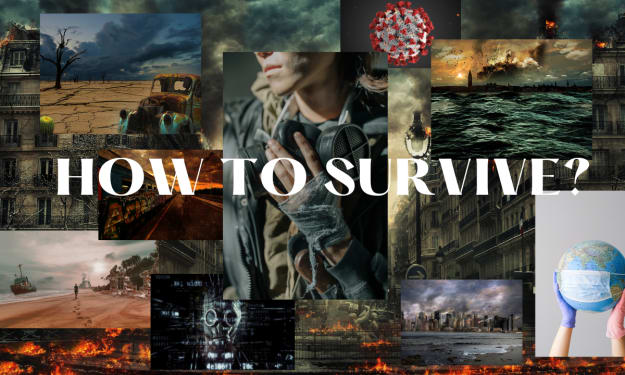Nature’s World Cries Out for More Eco-Fiction Writers to Save Our Planet
“To me, it underscores our responsibility to deal more kindly with one another and to preserve and cherish the pale blue dot, the only home we’ve ever known…On a mote of dust suspended in a sunbeam.” Carl Sagan

What is your understanding of the word ecology?
Ecology entered a broader cultural phase in the 1960’s and 1970’s when people became more interested in natural environmental issues and species within human connections.
In one corner, stands a venerable scientist with volumes of scientific treatises filled with definitions, experiments and facts.
Ecology means the study of the relationships between living organisms, including humans, and their physical environment as individual organisms within their communities and biosphere level.
Ecosystem means the study of ecology that links biotic and abiotic components through nutrient cycles and energy flows such as photosynthesis that is incorporated into plant tissue for food for secondary consumers.
So, how many people or children get excited reading scientific abstracts, reports and projections? There may be an emotional dissonance here.
In the other corner, stands an eco-fiction writer with skills to create emotions of empathy and personally belonging to a bigger vision.
What is an Eco-fiction Writer?
“Eco-fiction is an elastic term, capacious enough to accommodate a variety of fictional works that address the relationship between natural settings and the human communities that dwell within them." https://dragonfly.eco/eco-fiction/
This collaborative genre could be any fictional landscape that is based on ecological principles which become the setting, the plot and the theme of the story. The nebulae of Nature from the smallest cells to the largest lifeforms become alive as talking, feeling characters with human attributes and emotions. Their message is to set the right standards of respecting natural order, conservation and sustainability.
A variety of eco-fiction literature has developed many branches and styles to be found in many genres such as mainstream, westerns, mystery, romance, realism, science fiction and fantasy.
So what kind of ecological principles can be embedded into eco-fiction story?
You can talk about Nature in terms of redundancy without ego, diversity with connections, and adaptations for survival.
You can express amazement at nature’s master plan of organization from the nematodes to the nimbus clouds.
You can talk about responsibility to common goals, a democratic pattern of individualism and cooperation played out in ecological terms.
You may wonder about the infinite two-hydrogen-one-oxygen molecule, without which any Earth life wouldn’t exist.
You may ask about integrating the human factors of intervention, exploration or exploitation.
In fact, you can become more specific and talk about the reality of 4 levels in an ecosystem with plants and animals you see; but you must also involve nonliving elements (air and water) and microorganisms. Microorganisms include the bacteria, algae, fungi, and protozoa that are usually seen only with a microscope, but they must not be ignored because of their vital roles in decomposition, oxygen production and symbiotic relationships with plants so they can grow to serve as food for animals and humans.
What do you know about the essential nitrification process?
For example, nitrogen gas (N2) makes up 80% of the Earth’s atmosphere and is one of the primary nutrients critical for the survival of all living organisms. It is required for DNA, proteins and chlorophyll. But nitrogen gas is largely inaccessible to most organisms, and must be converted into ammonia (NH3) and nitrates (NH4) before it can be used by plants as food.
Enter the nitrifying bacteria which transform nitrogen into an oxidative state for plant roots to absorb…the nitrification cycle. Scientists explain the process by which "nitrogen is converted into multiple chemical forms as it circulates among atmosphere, terrestrial, and marine ecosystems through both biological and physical processes."
Now, on one hand, you can read a complex scientific treatise about this transformation; or, on the other hand, you can meet a nitrifying bacteria who explains his actions and his roles in the ecosystem. Fiction, yes, but science based as well with far reaching implications.
Or, you can read a scientific volume or two about the carbon cycle and how carbon compounds can make a series of conversions in the environment, from incorporating carbon dioxide gas into living plant cells by photosynthesis, and returning as a gas through respiration, or decaying dead organisms, and the burning of fossil fuels.
Let scientists outline Carbon as the "chemical backbone of life on Earth" that regulate the Earth's temperature, make up the food that sustains us, and provide energy that fuels our global economy.
Or, an eco-fiction story plot line can introduce a hydrocarbon molecule composed from the elements carbon and hydrogen who can explain his role from coal and crude oil to making natural gas, plastics, pesticides, even cosmetics and medicines. His experience shows how the burning of hydrocarbons produces greenhouse gases which in turn depletes the ozone layer and cause climate change. Fictional character simplified, yes, as well as experiencing the major convoluted impacts on the environment and ecosystems.
In summary, we need more eco-fiction stories that can create first person narrations and relationships between natural settings and human communities.
They need to share the reality of microorganisms, photosynthesis, food webs, carbon dominance, pollution, and changing weather patterns as their personal experiences.
We must hear their joys, fears and hopes. We must pay heed to their warnings of dangers and not ignore their messages.
Their characters' lives show how to inhabit an ecosystem based on ecological principles that call attention to act responsibly and to be good ethical stewards of the Earth.
Also, most importantly, we need stories that show what happens when anti-ecological principles are followed; such as, believing the only bond to nature is based on cash exchanges or using nature’s bounty as individual gifts, not for common purpose. There are ecological threats everywhere from tropical forest to coral reefs to extinction of animals, once gone, forever.
People need more first-hand stories about global warming, culture diaspora, survival of the weakest links, advocacy to protect our unique natural world and creation of a mythology we are all connected…what happens to one of us, happens to all of us.
It’s strange to say that the term eco-fiction has never been a media sensation and therefore has not become “com-modified or capitalizable, lending to its wildness.”
Maybe it’s time to change that to help save our planet.
What kind of nature story would you like to hear or write? What are your fears about our planet?
Annemarie
PS: Interested in writing a paper about eco-fiction, or even teaching it? Check out authors and resources here. https://dragonfly.eco/eco-fiction/
About the Creator
Annemarie Berukoff
Experience begets Wisdom: teacher / author 4 e-books / activist re education, family, social media, ecology re eco-fiction, cultural values. Big Picture Lessons are best ways to learn re no missing details. HelpfulMindstreamforChanges.com






Comments
There are no comments for this story
Be the first to respond and start the conversation.